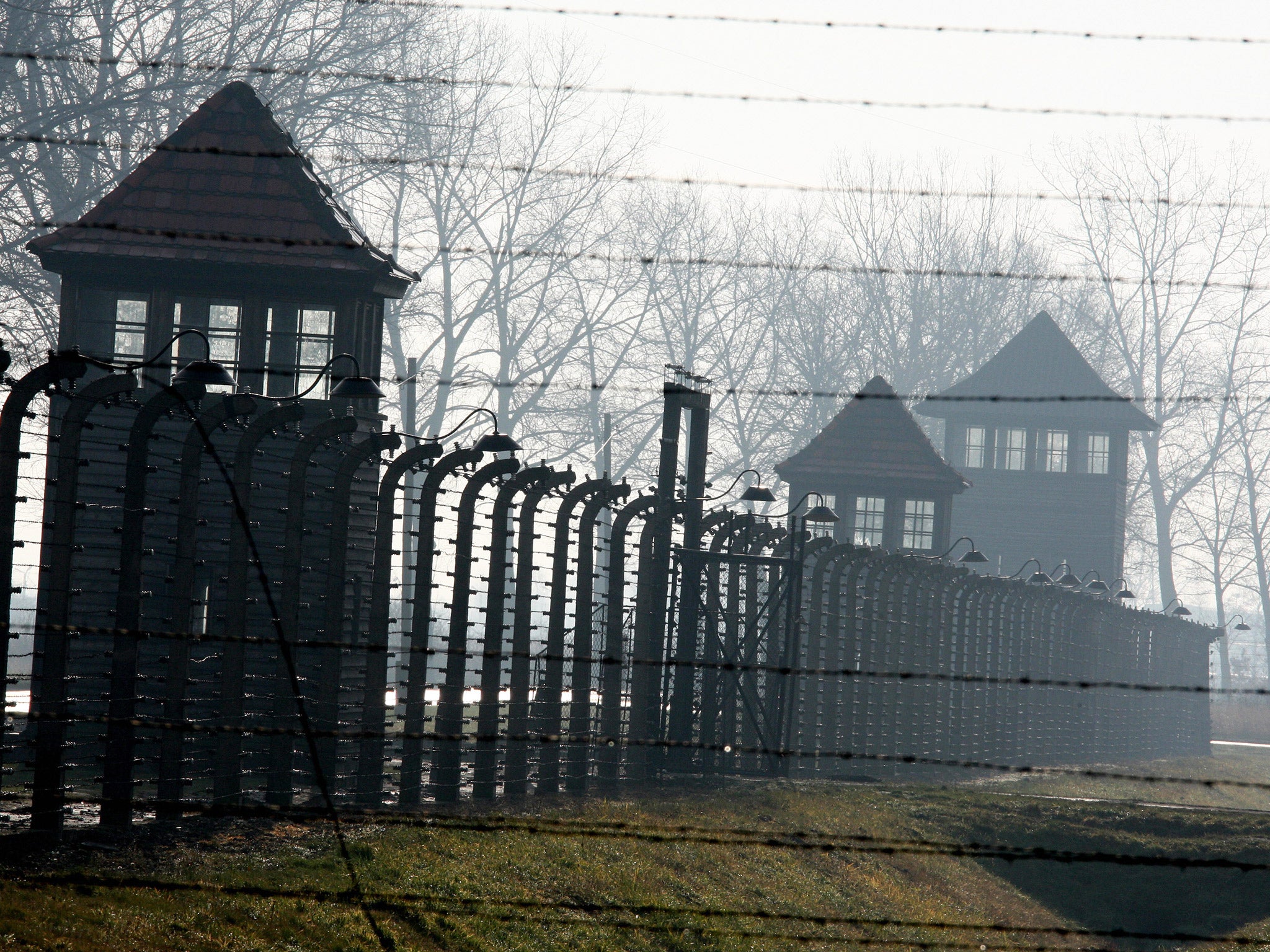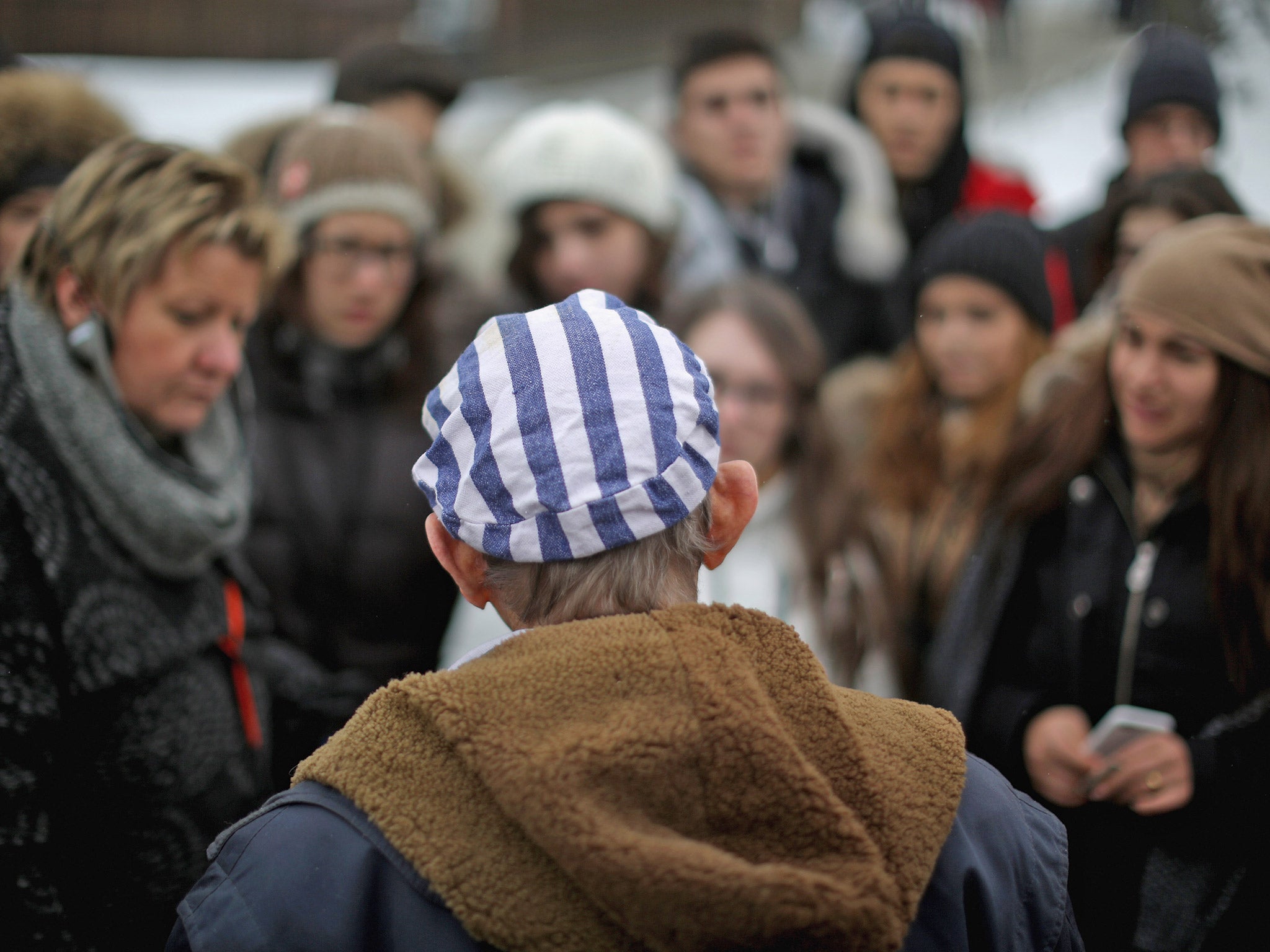Auschwitz: School trips are helping children fight discrimination at home
All children in England are taught about the Holocaust. But when teachers and pupils get the chance to see Auschwitz for themselves, the impact in the classroom is huge, discovers Sarah Cassidy

Your support helps us to tell the story
From reproductive rights to climate change to Big Tech, The Independent is on the ground when the story is developing. Whether it's investigating the financials of Elon Musk's pro-Trump PAC or producing our latest documentary, 'The A Word', which shines a light on the American women fighting for reproductive rights, we know how important it is to parse out the facts from the messaging.
At such a critical moment in US history, we need reporters on the ground. Your donation allows us to keep sending journalists to speak to both sides of the story.
The Independent is trusted by Americans across the entire political spectrum. And unlike many other quality news outlets, we choose not to lock Americans out of our reporting and analysis with paywalls. We believe quality journalism should be available to everyone, paid for by those who can afford it.
Your support makes all the difference.It is a beautiful day and a group of UK teachers stand in silence next to a railway truck on a short stretch of track outside a small town in Poland. This is Auschwitz-Birkenau, where more than one million Jews were murdered in the gas chambers as part of the Nazis' “final solution”, along with thousands of others including Poles and Roma travellers.
Earlier, the teachers stood on a grassy bank on the edge of the small town of Oswiecim, which was translated into German as Auschwitz. There is nothing there now but grass and trees, but before the Second World War, this was the site of a synagogue and near a bustling street of Jewish shops and businesses.
The group are among 200 teachers from the south of England who are taking part in a one-day visit to Auschwitz-Birkenau as part of the Lessons from Auschwitz project (LFA), run by the Holocaust Educational Trust (HET).
Based on the premise that “hearing is not like seeing”, participants hear the testimony of a Holocaust survivor, and learn about pre-war Jewish life before visiting the extermination camp of Auschwitz-Birkenau. There, they pass through the infamous gate with the camp motto “Arbeit macht frei” (work makes you free) before visiting exhibits where luggage, shoes and other personal items belonging to victims are piled high.
Since 1999, more than 22,000 sixth form students and teachers have taken part in the programme, funded by the government since 2006. Anita Parmar, head of the Lessons from Auschwitz project at the Holocaust Educational Trust says: “I think it is about rehumanising all the people involved in the events of the Holocaust. When you read about the Holocaust in text books, it can seem unreal because it seems so horrific and on such a large scale. When it comes to Auschwitz, it is easy to focus on the methods of murder. We want to move away from that to look at the individuals... If you have heard a survivor talk about that experience of being inside, it has a huge impact.”
Zigi Shipper is one such survivor. Now aged 85, he was just 14 when he arrived at Auschwitz in a cattle truck so crowded that there was only room to sit down once several passengers had died. Today, he visits schools and addresses groups of teachers as part of the LFA project and the HET's outreach programme.
Mr Shipper says: “People come to me and say, why do you still talk about it, it was such a long time ago? This is the reason – because I want young people to know what happened and where racism, prejudice and hatred can lead. I feel it is my duty to do it. The most important thing is that we must not forget. Look what's happening in the world. We have to fight it, we have to speak.”
Having someone who had actually been there tell you what it was like makes it much more real
In England, all students are required to study the Holocaust under the national curriculum during the first three years of secondary school, but it is usually taught in Year 9, to 13- and 14-year-olds. Academy schools are not required to follow the national curriculum, but it is assumed that Holocaust education will take place under a balanced curriculum. There is no requirement to teach about the Holocaust in Scotland, Wales or Northern Ireland, although the trust's work suggests that lessons do take place.
Year 9 pupils at The John Roan School, in Greenwich, south-east London, say that hearing Mr Shipper speak had not only helped them understand the history of the Holocaust but also had important wider lessons for them. “Of course, we had learnt that six million people died,” says John Shoben, 14. “But having someone who had actually been there tell you what it was like makes it much more real.” Jaratta Adanas, 14, says: “I understand why he has chosen not to hate the people who did this but if this had happened to me I would say I hate them.”
Students who have travelled to Auschwitz are expected to act as ambassadors for the project when they return to their schools, by designing and implementing projects to spread the message about the importance of tolerance and the dangers of discrimination.
Meanwhile, teachers often change the way they teach about the subject and re-evaluate the images they use in lessons. Anita Parmar says: “I think it makes them reassess their approach to the subject and how they will present it to their students. I think they think again about what kind of images should be used. We encourage teachers not to use photos of piles of dead bodies. These have been taken by perpetrators, and it is seeing things through the perpetrators' lens. Kari Olufsen, the key stage 3 history coordinator at The John Roan School, says: ”Mr Shipper is one of the most valuable tools I have as an educator to make the Holocaust a human story to my students. We talk about six million Jews being murdered during the Holocaust. That is a number that is almost too big to take on board. Ultimately, it is a story of resilience and survival. Often, it is students who don't really engage in the classroom who get the most out of it. One of the boys who really struggles to sit in lessons for an hour sat and listened intently to the testimony of a survivor.“
Naomi Barker, a philosophy and ethics teacher from Park High School, Stanmore, says that visiting Auschwitz had far more of an impact on her than she had anticipated. ”It was emotionally very powerful visiting the places, and I will be able to draw on this experience when teaching students. As a philosophy and ethics teacher, the comments by Anita on the day and the follow-up course was also invaluable at helping me to consider what we want students to take out of lessons on Shoah, including some key ethical and philosophical questions that need considering.“
John Callaghan, a history teacher from Gladesmore Community School in Tottenham, says the LFA programme had humanised the Holocaust for him. He says: ”It is easy for teachers and students to get lost in the scale and horror or the events, becoming overwhelmed by statistics or some of the more gruesome visual representations of the Holocaust. The project emphasised to me the importance of drawing out the individual experience in order to help us connect with the events, but also to try and better understand the experiences of the victims and also the motives of the perpetrators.

“By looking at individuals, I think you draw out a lot more, even if it is sometimes challenging, and begin to see the Holocaust as a process involving ordinary people of all backgrounds. It was not crazed psychopaths or distant historical figures with whom we have no common ground – and in that sense, it is quite terrifying. We intend to look at a number of individual case studies such as survivor testimonies and first-hand accounts of camps such as Auschwitz, to try and draw out discussions on difference, responsibility, resilience and so on in order to try and build and develop these ideas.
But these are always not easy topics to tackle in the classroom. Ms Barker said that in her school she had had to deal with a pupil who denied that the Holocaust took place, as well as parents who refused to let their children listen to a visiting Holocaust survivor.
She says: ”I work in a multi-faith, multi-ethnic school and normally there are no problems. But last year, we had some issues, with one student denying the Holocaust and parents not allowing their children to listen to a visiting Holocaust survivor. Based on comments from the students involved, it seems to be anti-Semitism conflated with the Israel-Palestine conflict and it took some careful negotiation on our part as teachers and parents to explain to students where they are wrong.“
The LFA programme has been extremely successful, with schools – both state and independent– signing up to take part. But one of the challenges for the HET is to consider how the scheme must change and develop as, inevitably, the last survivors die.
”In a few years, there will not be any more Holocaust survivors left. [But] while there are people such as the Holocaust Educational Trust, I have got full confidence that it will never be forgotten,“ said Mr Shipper.
Join our commenting forum
Join thought-provoking conversations, follow other Independent readers and see their replies
Comments